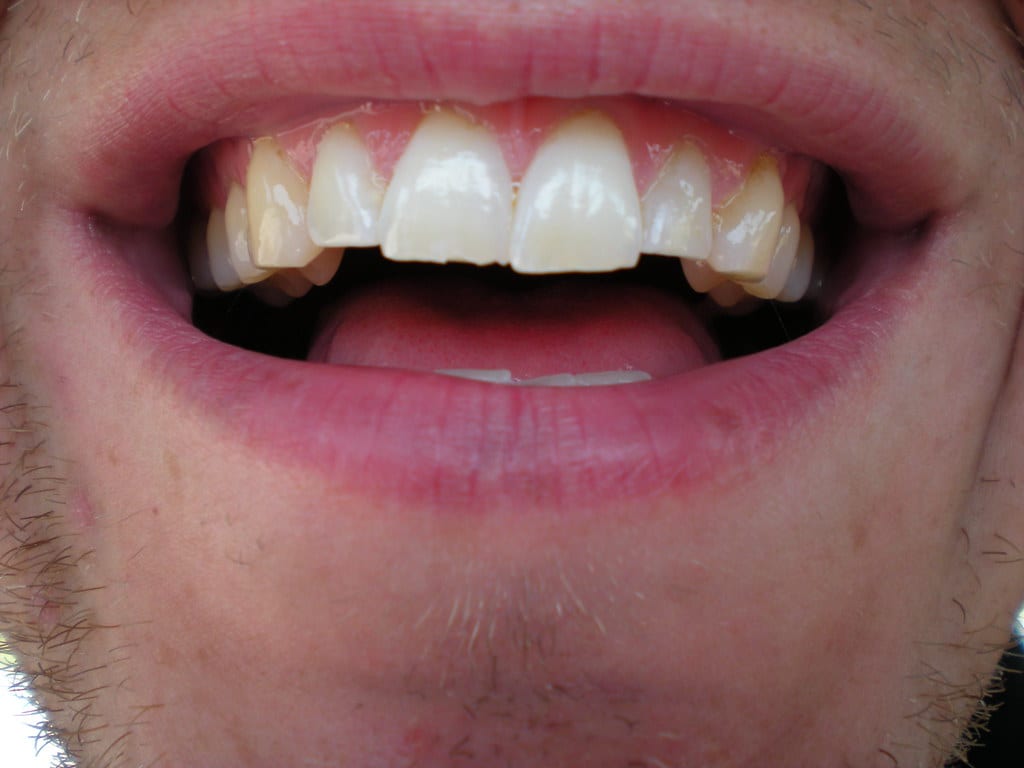Your child may chip a tooth for a variety of reasons, such as chewing on a pencil while doing homework, biting an ice cube while eating dinner, or running into a basketball hoop while shooting hoops in your driveway. While many chipped teeth will require your child to visit a dentist as soon as possible, most are easily treated. At Barron Family Dental, our friendly staff is always here to help if your child chips, cracks, or otherwise injures a tooth.
How Can You Chip Your Tooth?
 Chipped, cracked, or otherwise broken teeth can occur for a variety of reasons, many of which are almost entirely preventable.
Chipped, cracked, or otherwise broken teeth can occur for a variety of reasons, many of which are almost entirely preventable.
Biting or chewing on hard foods or items that are not meant to be placed in the mouth at all are among the most common causes of chipped or cracked teeth. Chewing ice, hard candies, or other foods that are only meant to be sucked on can lead to chipped teeth, as can accidentally biting pieces of bone in chicken nuggets, hamburgers, or other types of meat. Biting fingernails, using the teeth to open bottles, snacks, or other packages, and chewing on pens or pencils are common ways that nonfood items can cause your child to chip a tooth.
Sports injuries are another common cause of chipped teeth. Being hit in the face with a ball or bat, running into another player, or falling into a nearby goal, bench, the ground, or another object can damage your child’s teeth. Although most children are not playing team sports right now, these injuries can still occur from playing basketball, baseball, or other sports at home, falling off a bike, or running into backyard playground equipment.
Cavities or poor oral hygiene can make your child more prone to chipped teeth. Although they do not typically cause chipped teeth on their own, they can weaken the tooth enamel, which can make your child more likely to chip a tooth if they chew hard foods, bite nonfood items, or are injured.
What Should I Do If My Child Chips a Tooth?
Determining the severity of your child’s chipped tooth can help you identify the most appropriate next steps to take. Minor chips that do not cause pain will typically only need to be smoothed by a dentist and may not need to be taken care of immediately. More severe chips that are larger, painful, or have sharp edges that may further damage the mouth are considered dental emergencies, and your child should visit a dentist as soon as possible.
Steps to Take at Home
Although most chipped teeth will require a visit to your child’s dentist as soon as possible, there are steps that you can take as soon as the injury occurs to minimize pain and prevent further damage to the tooth.
- Begin by having your child rinse his or her mouth with warm water, salt water, or mouthwash to remove food particles from the area, which can help to prevent infections or other tooth damage. Avoid using hot or cold water, as extreme temperatures can increase pain in larger chips that expose the pulp of the tooth.
- Taking an over-the-counter pain medication, such as Tylenol or ibuprofen, and applying an ice pack to the face near the tooth can help to minimize pain and swelling until your child can get to a dentist.
- Use gauze to cover the tooth if there is any bleeding.
- Covering the chipped tooth with dental cement, which can be found at most drugstores, can help protect the chipped tooth as a last resort if your child can’t see a dentist immediately.
Finally, do not panic. Remember that most chipped or cracked teeth look worse than they are and are relatively easy to treat. Your child is likely to take cues about how to act and feel from you, and staying calm yourself can go a long way toward helping your child stay calm and comfortable.
Typical Dental Treatments for Chipped Teeth
Typical dental treatments largely depend on the level of severity of your child’s chipped tooth. Most chips that are very small will only need to be smoothed and polished to even out the surface of the tooth, while larger chips often require more extensive dental work. Medium-sized chips are generally treated with fillings, crowns, or caps. Many chips of this size act much like large cavities, and they typically respond well to relatively basic dental work that protects the surface of the tooth and restores a normal appearance. Very large chips or breaks that expose the nerve will usually need to be treated with a combination of a root canal and a crown or cap to repair severe damage, or the tooth may be replaced with an implant, though chips of this size are uncommon.
Preventing Chipped Teeth
The vast majority of chipped or cracked teeth can be prevented. By helping your children break bad habits, such as biting their nails, chewing on ice, or using their teeth to open packages, you can eliminate several of the most common causes of chipped teeth. Reminding them to wear a mouth guard while playing sports can prevent a variety of tooth and mouth injuries, and encouraging proper oral hygiene can strengthen the teeth to make them less prone to chipping. Although most chipped teeth can be treated easily, prevention is always better than treatment.
At Barron Family Dental, we prioritize giving parents the resources they need to make informed decisions about their children’s oral health and help them learn to build healthy habits from a young age. Our caring staff and family-oriented atmosphere create an environment that helps children feel comfortable and keeps fears to a minimum. Although chipped teeth and other dental problems can be frightening and painful, they can be easily treated in most cases, and many can be prevented. At this time, we are open during our regular hours to meet the routine and emergency dental needs of residents throughout Thornton and the rest of the Denver metro area. Visit our website to learn more about the services we offer or contact us today to schedule an appointment!



